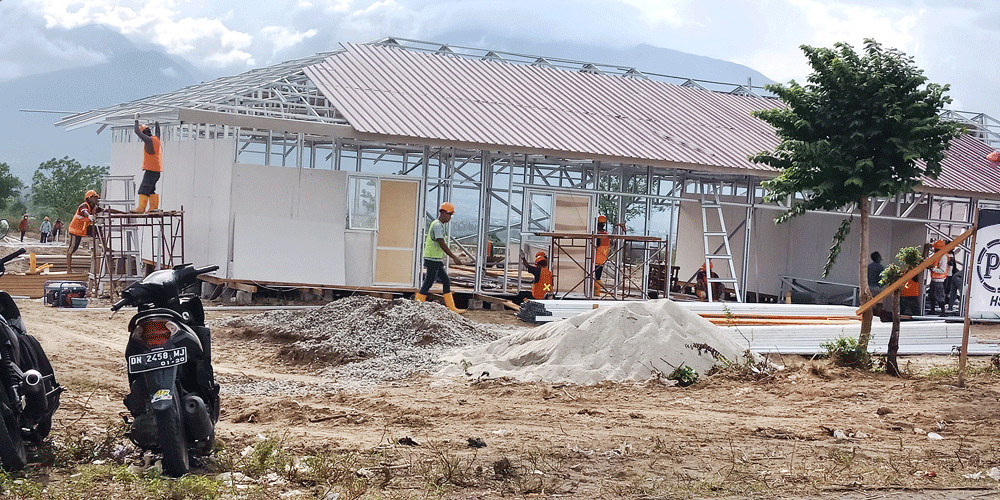Popular Reads
Top Results
Can't find what you're looking for?
View all search resultsPopular Reads
Top Results
Can't find what you're looking for?
View all search resultsFive months after tsunami, C. Sulawesi still in emergency
The provincial administration has extended the emergency status for the third time after the disaster.
Change text size
Gift Premium Articles
to Anyone
Five months after earthquakes, a tsunami and soil liquefaction devastated Central Sulawesi in September last year, the region maintains its emergency status after the provincial administration extended the phase.
The emergency transition phase was scheduled to end this week, but a meeting involving the provincial administration, National Disaster Mitigation Agency (BNPB), Public Works and Housing Ministry working unit and other stakeholders decided to extend the status until April 23.
“In the middle of the meeting, Vice President Jusuf Kalla called and told us to make sure that the huntara [temporary accommodation] came with basic features, such as electricity and clean water,” Central Sulawesi Governor Longki Djanggola told The Jakarta Post on Wednesday.
The vice president later agreed to the extension of the disaster emergency transition status, he added.
This is the third time the phase was extended. The first emergency phase applied from Sept. 29 following the disaster until Oct. 26. It was extended for 60 days until Dec. 25, then again until Feb. 23 and most recently until April 23.
National Commission on Human Rights Central Sulawesi representative Dedi Askary expressed hope that the extension meant authorities could implement plans effectively and efficiently.
“Extension after extension has the same consequences, that is extending the suffering of the survivors in 400 temporary shelters,” he said.
So far, 488 of the targeted 699 huntara had been built for survivors in Palu, Donggala, Sigi, and Parigi Moutong, according to Arie Setiadi, who heads the Public Works and Housing Ministry’s working unit.
“Yet, as not all of them have access to electricity and clean water, we ask for two more months to finish them,” Arie said.
According to the initial plan, a total of 1,200 huntara would be built in two phases. However, as Jusuf Kalla told them to finish the 699 units, no additional huntara would be built, Arie said. Of the 699 to be built, 441 were ready.
“We continue to work with [state-owned electricity company] PLN to meet the needs,” he said.
Meanwhile, 3,000 permanent houses are planned to be developed in Tondo Palu Timur subdistrict with financial support from the Tzu Chi Buddhist Foundation.
Separately, Central Sulawesi Social Affairs Agency head Ridwan Mumu said the mourning funds would be disbursed soon, but only 1,606 of the 4,402 victims killed in the disaster had been verified.
“The funds for the verified ones will be wired to their respective next of kin,” Ridwan said, adding that funds had also been prepared for the 72,000 evacuees to cover 60 days of living costs. (swa)










